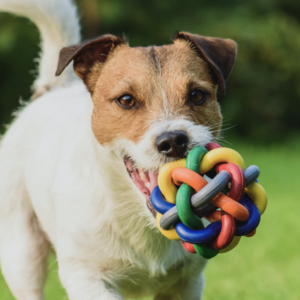So you are thinking about taking the leap into pet ownership? How exciting! This will be an experience that will change your life forever. There are a few things to keep in mind when you are acquiring a pet for the first time. The first few months will be the most costly and you will have many trips to your veterinarian. Generally most puppies or kittens have received their first boosters, but what you may not be aware of is that cats and dogs require a set of 3. They will require the boosters to be done at 8, 12, and 16 weeks of age.
In some cases your new puppy or kitten may have already received some deworming but 1 treatment is not effective enough and most need deworming every 2 weeks until 16 weeks of age. All puppies and kittens will more than likely have parasites; your veterinarian will prepare a deworming routine to keep your new pet safe from unwanted parasites. This is also the time where they may offer fecal testing to you. The fecal test can reveal other parasites that your pet may be carrying. Scary thing about parasites is that we as humans can also contract them from our pets. So not only are we protecting our pets but we are protecting ourselves!
The next big step is spaying or neutering. At Park Road Veterinary Clinic we recommend this to be done at 20 weeks (5 months old). There are various surgical options available. If you have a dog that has dewclaws (thumbs on hind feet) they can be removed or a hernia can be repaired. If you have a cat that you would like to have front declawed it is recommended to be done at same time as the spay or neuter.
At this time the staff may discuss a microchip. The chip is linked to a company that has your contact information. If Fluffy or Max go missing and find their way to a shelter or animal hospital; the staff will scan them for the chip and contact you immediately. This has helped many pets get back home!
You also need to consider proper nutrition for your pet. Many commercial diets are available; knowing what to feed them is no easy feat! Your best option is to discuss this with your veterinary team. They can help narrow down a proper diet that will benefit your pet and help them to live a long healthy life. You will change their diet a minimum of 3 times throughout their lives.
Another thing to remember is the time required to bond with and train a pet. Taking your puppy to training classes is helpful to you both. As the owner it helps you learn how to shape and mold your pets behavior to be acceptable to people and other animals. The training classes help build confidence and socialize with other people and animals. The last thing you want is to go out and get this adorable puppy and have him/her jump up on every person that walks through your door! Sure, it’s cute when they’re little, but the cuteness wears off pretty quickly on house guests.
When I got my new puppy I also made sure to crate train him. This means that when I leave he is confined to a kennel, so I can rest assure he is not getting into trouble (and trust me he will!). His crate is now his “bedroom”. He will lay in there even when I am home with him. It starts to become “their space”
A new kitten on the other hand seems to be a lot less involved. Their veterinary care is still the same requiring the same boosters, deworming and nutritional information, but they don’t need training classes. Tricks can be taught to them with a lot of time and patience. With most kittens, litter training comes naturally; making house training a cat easier than a dog.
If you are looking to get a pet for companionship you need to decide how much time you have to offer them. As mentioned before dogs require a lot more of your time. If you are a person who is on the go much of the day a dog may not be best for you. Maybe you could consider a cat? If you lead an active life a dog may be a great option for you!
One last thing to consider is that unexpected things happen. It is worthwhile to consider pet insurance or open a savings account for your new four legged friend. If anything were to happen you will be financially prepared to deal with the situation. Whatever decision you make you will be forever be changed. Your pet will love you unconditionally and all they will hope for in return is that you do the same.
Written by: Amy Hanchiruk




